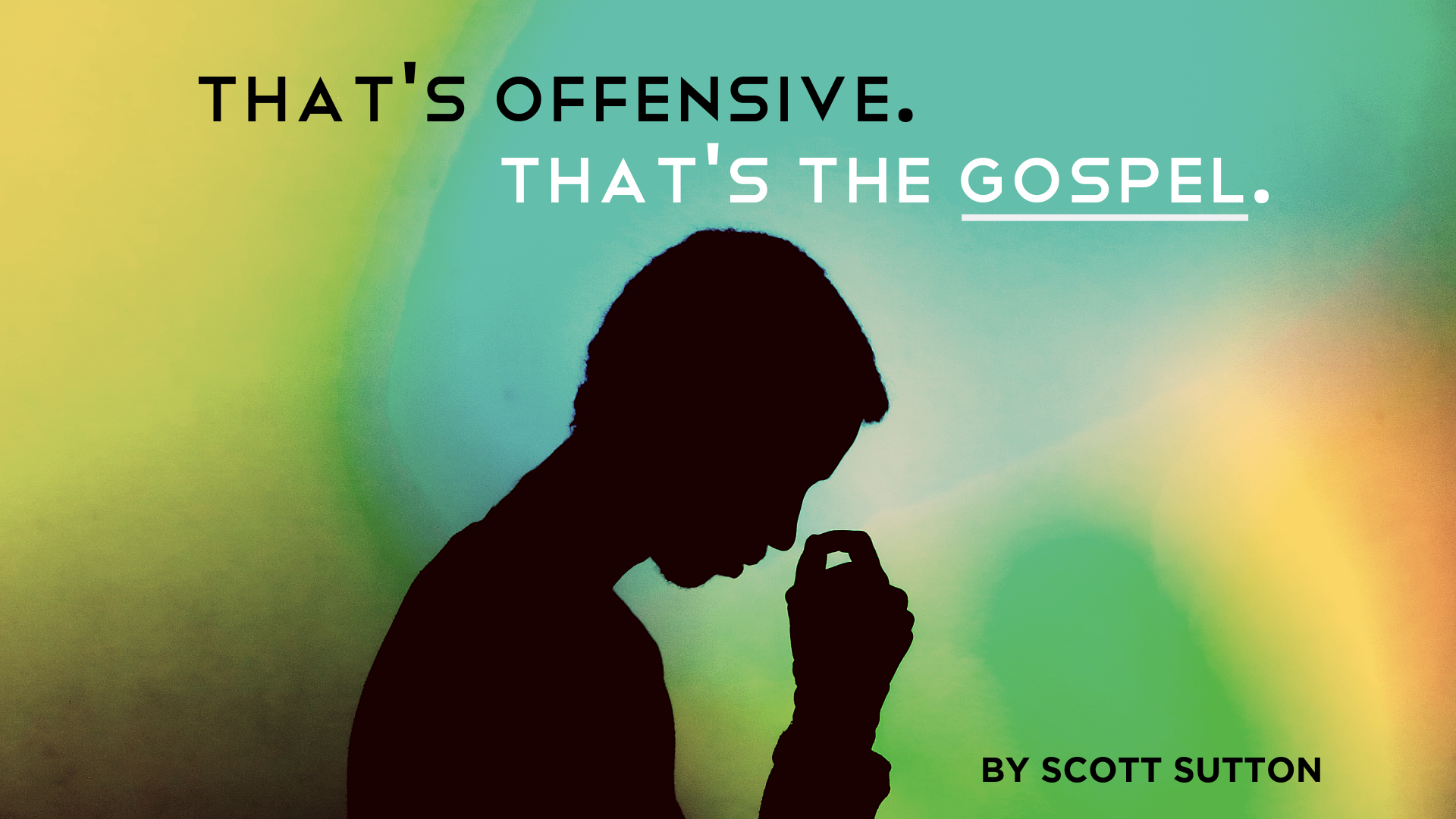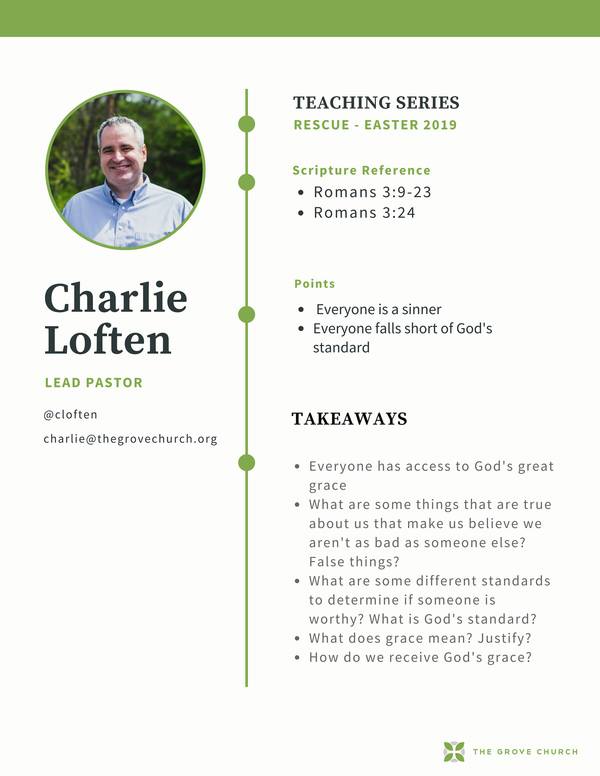
by Scott Sutton
I once described the gospel to someone as being “offensive”.
“Why would you describe it that way?” they asked in a tone that suggested they would never ever describe it that way. I fumbled through an explanation. And in the time since that conversation I have come back to this word on several occasions, wondering if it is appropriate or if it is needlessly provocative.
I still believe it’s appropriate. Here’s why.
This week The Grove Church began a sermon series in preparation for Easter, walking through the sequence of Bible verses which are collectively referred to as the “Romans Road”. The first verse is a doozy. Out of the gate, we are hit with, “For all have sinned and fall short of the glory of God.” (Romans 3:23) All of us. Sinners. Unworthy of the presence of God. You might think that I call the gospel offensive because of this; because calling someone a sinner is generally a good way to start a fight. Right?
Sort of. But our culture doesn’t really seem to have a problem with calling out sin. In fact, we are quite adept at pointing out the moral failings that we see all around us every day, whether we are religious or not. To see this in action, just visit a social media posting from your favorite news source and camp out in the Comments section for a little bit.
>
“Too frequently, the gospel is oversimplified to our culture today as either “God loves you” or “You’re going to hell.” No wonder the world outside the church is so confused about what we stand for. ”
But what we do with that reality is where this whole thing can quickly become offensive. Too frequently, the gospel is oversimplified to our culture today as either “God loves you” or “You’re going to hell.” No wonder the world outside the church is so confused about what we stand for. We either want to skip past Romans 3:23 (and 6:23) to avoid being offensive or weaponize it as a means by which we can cut down and shut down anyone with whom we disagree. We want a gospel that is full of Grace, or we want a gospel that is full of Truth. We are offended by a gospel that refuses to be so easily contained.
But that’s exactly what we are confronted with. As Jesus’ disciple, John, mused in his reflection on who Jesus was and why he lived, he penned the verse, “The Word became flesh and made his dwelling among us. We have seen his glory, the glory of the one and only Son, who came from the Father, full of grace and truth.” (John 1:14)
>
“His response to the reality that all of us have sinned against him and fall short of being worthy to so much as stand in his presence is something far more mysterious, far more profound. In fact, 2000 years later we still don’t have a very good category for it.”
This is how God responds to our sins against him. He doesn’t simply wave his hand and say, “Nah, we’re cool.” Nor does he burn with rage and seethe, “I’m finished with you.” No. His response to the reality that all of us have sinned against him and fall short of being worthy to so much as stand in his presence is something far more mysterious, far more profound. In fact, 2000 years later we still don’t have a very good category for it.
When we were God’s enemy, he took on the form of his enemy and showed up on our doorstep. He put on flesh and quietly entered into the circumstances of the offender. And we, the offender, killed him. I’m convinced that if 100 Jesuses came we would kill every single one of them. Because the nature of our interaction with Jesus – visible God – is merely a manifestation of our interaction with invisible God.
It’s offensive because the Truth of the matter is that the weight of the offense is heavy and it is completely our own doing; it’s offensive because the Grace of the matter is that God bears all of that weight completely on himself in order to restore us to him. It’s offensive because he then commands us to turn to our enemies and do likewise.
We do not shy away from exposing and calling out sin where we see it. This is the mandate of Truth. But the mandate of Grace is that we run toward the sinner with sincerity and love, prepared to enter the long difficult work of reconciliation just as he is doing for us.
That’s hard.
That’s messy.
That’s offensive.
That’s the gospel.


